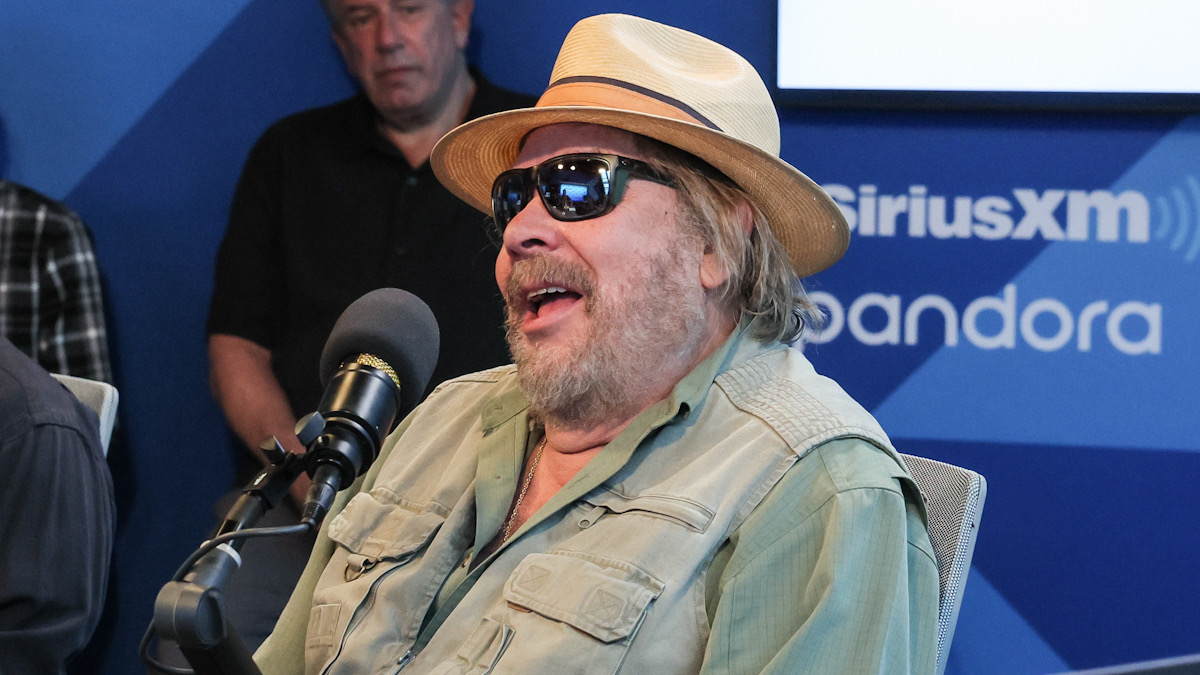It’s been nearly 50 years since Hank Williams Jr. faced his mortality on the icy cliffs of Montana, but the country singer is still grateful to be alive. After struggling with his father’s legacy, depression, and alcoholism for most of his youth, Williams Jr. thought he had finally come to terms with his lot in life when his best-laid plans came crashing down.
What happened to Hank Williams Jr?
On August 8, 1975, Williams was mountain climbing with a friend and his son – a favorite pastime for the country boy – when the unthinkable happened. While climbing Ajax Peak, a mountain along the continental divide that separates Montana from Idaho, looking for mountain goats Williams lost his footing. Despite the late season, the snow was still thick in the icy mountains obscuring the precarious footing and as the snow sheet slid away from the mountain, Williams went with it.
He fell more than 500 feet, tumbling through snow, rock, and mountain detritus before he finally came to a stop. Though he doesn’t remember much of the experience, he does remember desperately hoping to slow himself. He recounted the ordeal for a 1987 ABC interview, “You wanna stop so bad, but you can’t stop.” He says it with a smile even as the horrific details follow, “There was a sharp boulder.” He motions between his eyes, up over his face, continuing, “It did the job, right between the ol’ eyes.”
Though Williams doesn’t remember much of the fall save for the sound of hitting the rock, he was very lucid after the accident. He says his immediate instinct was to check his hands. Once he was sure he could still hold a guitar, he tried to assess where most of the blood was coming from and discovered it was his face, “The blood was coming out and I grabbed my face and there wasn’t any face there, hardly.”
His fellow hiker Dick Willey took some time to safely reach Williams, who was, by that point, trying to move himself to safety. “‘Bout the only thing he had left was the one eye.” Willey recounts the damage with a calculated nonchalance, the cool tact of a rancher. “It literally tore his nose off. Drove it up through his head and blew a hole in his forehead, which exposed the brain.” It was that injury that instilled real fear in Williams, “ I could put my fingers into my forehead.”
Fully in shock, Williams could feel nothing as Willey wrapped his face in a shirt. He was convinced he would be able to walk back to civilization, even as he realized the extent of his blood loss. Willey was able to convince Williams to stay back with his son, who became Williams’ temporary guardian while Willey went in search of help.
Weeks before the accident, Williams had finished recording his breakthrough album, Hank Williams Jr. & Friends, and the extensive injuries made it likely that he would never sing again. Willey recalled the damage to his friend’s lower face as extensive, saying his jaw, teeth, and gums were “pretty much ruined.”
The aftermath
The injuries should have killed Williams outright, but against all odds, he survived the fall and the six-hour wait for air evac to get him to the nearest hospital. His brain was fully exposed, shards of rock embedded in the soft tissue, and William’s doctor made sure to let him know it was nothing short of a miracle that he survived the ordeal. “You know how people say they have been born again? Believe me, you were.”
Williams had multiple skull fractures, and the extensive damage required 17 surgeries spread out over several years. The scarring led Williams to adopt a new look, thick sunglasses to hide his eyes, and a cowboy hat to conceal skin grafts over the metal plate in his skull.
Though in immense pain, Williams didn’t want company while recovering, the country music community rallied behind him. He told Rolling Stone in 2015 that June Carter and Johnny Cash were there when he first woke, and the visit meant a lot to the young singer. “June put a cross on me and told me it was all going to be OK. I never knew if I would sing again or not, talk again or not, let alone think about what I was going to look like. It was a scary time.”
Despite the extent of his injuries, it would only be two years before Williams was back in the studio working on One Night Stands in 1977. Though it was three more years still before he put his experience into words with 1980’s “All in Alabama.”

